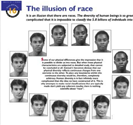The meaning of sense of coherence in transcultural management: A salutogenetic perspective on interactions in a selected South African business organisation
Author(s) Claude Helene-Mayer
2011, Waxman
Managers are confronted with numerous challenging situations in their work life. Managing diverse interactions professionally has become a ubiquitous requirement of current working conditions in transcultural management, whilst remaining healthy at the same time. This study contributes to the theoretical debate on managerial sense of coherence, identity, organisational culture and transcultural conflict (management) in international…
View MoreMacro Cultural Psychology: A Political Philosophy of Mind
Author(s) Carl Ratner
2011, Oxford University Press
This book explains how macro cultural factors ‚- social institutions, cultural artifacts, and cultural concepts ‚- are the cornerstones of society and how they form the origins and characteristics of psychological phenomena. This theory is used to explain the diversity of psychological phenomena such as emotions, self, intelligence, sexuality, memory, reasoning, perception, developmental processes, and…
View MoreFundamental Questions in Cross-Cultural Psychology
Author(s) Fons J. R. van de Vijver, Athanasios Chasiotis, & Seger M. Breugelmans
2011, Cambridge University Press
Table of Contents Introduction Fons J. R. van de Vijver, Athanasios Chasiotis and Seger M. Breugelmans Part I. Setting the Stage:1. Fundamental questions of cross-cultural psychology / Fons J. R. van de Vijver, Athanasios Chasiotis and Seger M. Breugelmans Part II. Explanation of Cross-Cultural Differences:2. Past and present of cross-cultural psychology / Gustav Jahoda3.…
View MoreSpirituality and Indian psychology: Lessons from the Bhagavad-Gita
Author(s) Dharm P. S. Bhawuk
2011, Springer
From the Back Cover In recent years, globalization, multiculturalism, and Western interest in Eastern thought have contributed to the growth of cross-cultural psychology. Paradoxically, however, while spirituality plays such a major role in non-Western cultures, it tends to occupy only a minor area of cross-cultural research. Its roots in ancient philosophical texts such as the…
View MoreHuman Autonomy in Cross-Cultural Context: Perspectives on the Psychology of Agency, Freedom, and Well-Being
Author(s) Valery Chirkov, Richard Ryan, & Kennon Sheldon (Eds.)
2010, Springer
Content Introduction. The Struggle for Happiness and Autonomy in Personal and Cultural contexts: An Overview Valery I. Chirkov, Kennon M. Sheldon, and Richard M. Ryan Part 1. A Theoretical Context of Human Autonomy, People’s Well-Being, and Happiness 1. Positive Psychology and Self-Determination Theory: A Natural Interface Kennon M. Sheldon and Richard M. Ryan 2.…
View MoreAdvances in Culture and Psychology (Vol. 1)
Author(s) Michele J. Gelfand, Chi-yue Chiu, & Ying-Yi Hong (Eds.)
2010, Oxford University Press
IACCP member discount: click here Table of Contents Foreword Introduction Human Culture in Evolutionary PerspectiveMichael Tomasello Culture, Emotion, and ExpressionDavid Matsumoto and Hyi-Sung Hwang Infectious Disease and the Creation of CultureMark Schaller and Damian R. Murray Attachment, Learning and Coping: The Interplay of Cultural Similarities and DifferencesFred Rothbaum, Gilda Morelli, and Natalie Rusk Culturally…
View MoreReturn Migration and Identity: A Global Phenomenon, A Hong Kong Case
Author(s) Nan M. Sussman
2010, Hong Kong University Press
The global trend for immigrants to return home has unique relevance for Hong Kong. This work of cross-cultural psychology explores many personal stories of return migration. The author captures in dozens of interviews the anxieties, anticipations, hardships and flexible world perspectives of migrants and their families as well as friends and co-workers. The book examines…
View MoreWhat ARE We Talking About When We Talk About Race?
Author(s) Marshall Segall
2010, Amazon.com
Confusion persists over the meaning of “race” and related terms like racial and racism. The concept is consistently used as if it were a biological reality, when it surely is not. In about 85 pages, with compelling graphic illustrations, the award-winning cross-cultural psychologist, Marshall Segall, dispells the illusion of race and reveals the unity and…
View MoreCross-Cultural Research Methods in Psychology
Author(s) David Matsumoto and Fons J. R. van de Vijver, Editors
2010, New York: Cambridge University Press
Cross-cultural research is now an undeniable part of mainstream psychology and has had a major impact on conceptual models of human behavior. Although it is true that the basic principles of social psychological methodology and data analysis are applicable to cross-cultural research, there are a number of issues that are distinct to it, including managing…
View MoreAPA Handbook of Intercultural Communication
Author(s) David Matsumoto, Editor
2010, Washington, DC: American Psychological Association
In today’s globalized world of international contact and multicultural interaction, effectiveintercultural communication is increasingly a prerequisite for social harmony andorganizational success. The APA Handbook of Intercultural Communication illustrateshow the practical, problem-solving approach of applied linguistics can illuminate a rangeof issues that arise in real-life intercultural interaction. Experts from a range of socialscience disciplines, including psychology,…
View More









